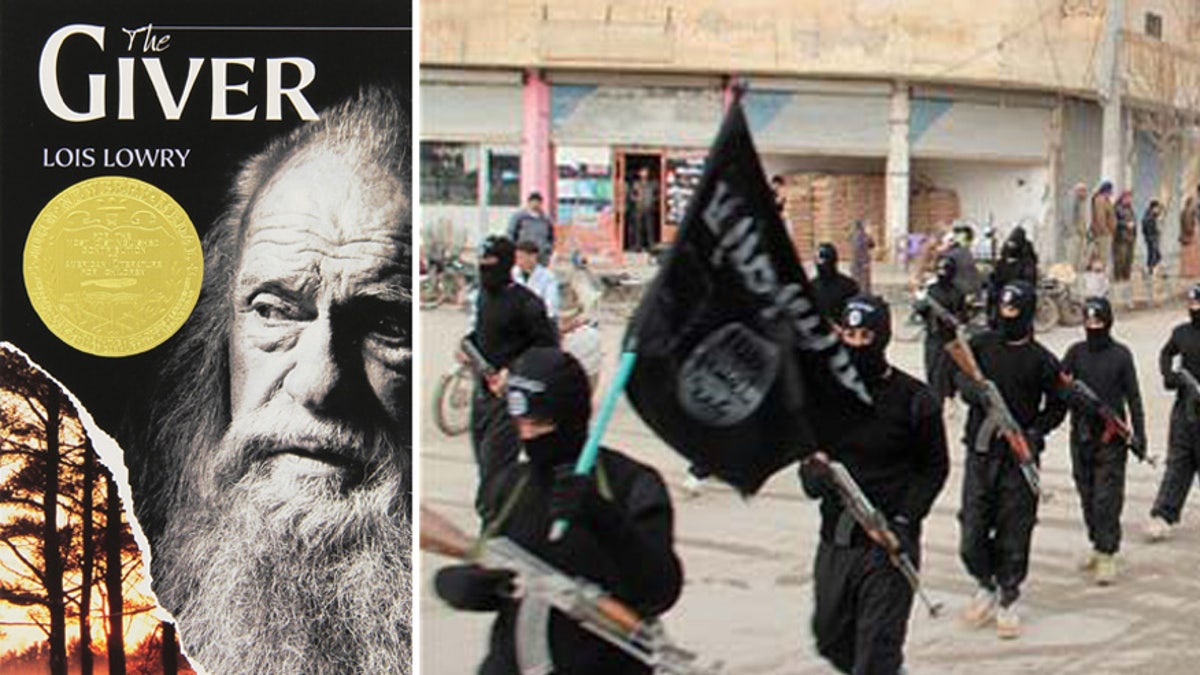
When life imitates tragic art. (Amazon.com/Reuters)
Sometimes life imitates art—and when life gets really ugly, it can channel an anti-utopian novel. Daily existence in North Korea over decades could have been scripted by George Orwell, while the Rwandan genocide of the 1990s mirrored Joseph Conrad’s "Heart of Darkness."
And today there are sad parallels between the world of "The Giver" and the crisis in Iraq, especially the savage campaign conducted by ISIS against Christians and other religious minorities. That powerful new movie, based on a classic young adult novel, vividly highlights some of the life-and-death issues at stake in this latest instance of Islamist extremism.
It does not trivialize the real-world sufferings of persecuted Christians in Iraq to compare their plight to that faced by fictional characters. Instead, the comparison helps to elevate the work of art, to apply its meaning to advancing freedom and fairness.
A thoughtful moviegoer will see surprising parallels between the secular, nanny-state Elders who rule the world of "The Giver," and the theocratic bullies who dominate ISIS:
-Like the Elders, ISIS seeks to create a top-down, homogenized society, where differences are suppressed in favor of blind obedience to authority.
-The Elders purge their community of all memories of the past, including every trace of religious faith. ISIS tries to blot out the memory of every religion but their own, painting over the rich, diverse history of its region, which was home to churches and synagogues long before Islam existed. Indeed, radical Islamists dismiss all pre-Muslim history as “jahiliyya,” a dark night of ignorance where nothing of value was ever created.
-In "The Giver," the Elders wield unquestioned power in the service of a pre-planned utopian order, whose tenets may not be disputed by any citizen. ISIS pretends that its power is underpinned by sharia—a timeless political system that Islamists claim was directly revealed by God, and hence is beyond any rational questioning, much less dissent.
-Both the “humanitarian” Elders and the theocrats of ISIS see human life as less than sacred. Only certain lives are worth preserving, while others may be disposed of quickly and cleanly, if their presence threatens the regime’s preconceived, perfect plan. In either the fictional world of "The Giver," or the dusty streets of Mosul, standing up for the sanctity of human life requires heroic courage, and the willingness to risk one’s own life in defense of the innocent.
It does not trivialize the real-world sufferings of persecuted Christians in Iraq to compare their plight to that faced by fictional characters. Instead, the comparison helps to elevate the work of art, to apply its meaning to advancing freedom and fairness.
Millions of young adults have devoured "The Giver" in book form, learning from it crucial lessons about spiritual and political liberty. They also learned how dismal a world is created when we truncate human nature, reduce men and women to something less than their full humanity—either through social, political, or religious coercion. The threat posed by such “subhumanism” is one of the key themes in our new book, "The Race to Save Our Century."
We hope that the readers and viewers of "The Giver" absorb its deep implications and put them into practice—saying no to attempts to manipulate, degrade, or destroy human life in whatever form, for whatever pretext (be it humanitarian or theological). At this moment in history, when unarmed believers are being rounded up and threatened with death, we who enjoy religious freedom have a solemn duty to step in and aid these vulnerable people.
We hope that if America’s freedom is someday taken away, people in other, luckier lands will do the same for us.








































